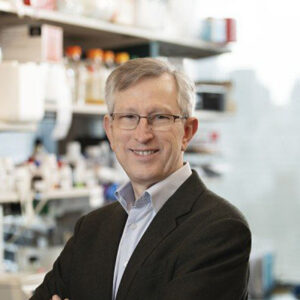The past two decades have been a golden age of discovery in genetics and cancer research. Using fast, affordable DNA sequencing, scientists have identified scores of gene mutations associated with cancer and developed highly effective drugs to target them.
As tumor sequencing has become a routine part of cancer diagnosis, we have stopped treating cancer based on its location in the body and focused instead on the genes that drive its growth in each individual patient.
This revolutionary approach, called precision oncology, has saved countless lives. Yet too many people are still dying from cancer, and we now know that addressing genetics alone cannot save most of them.
Up to 90% of the 600,000 Americans who will die from cancer this year will die from metastasis, when cells from a primary tumor spread and grow in other parts of the body. Precision oncology cannot treat metastatic cancer because, to our knowledge, there are no metastasis genes.
We have certainly searched for metastasis genes—researchers at Memorial Sloan Kettering Cancer Center (MSK), for example, have analyzed tumors from more than 25,000 patients whose cancer had spread, finding no mutations that specifically drive metastasis.
Advanced imaging and computational techniques that didn’t exist a decade ago allow us to observe and understand this disease as never before—and to pursue answers to some of our most challenging questions.
This prompts one of the largest questions in the field: What spurs the spread of cancer if not genes alone? To answer it, and to save even more lives in the next decade, we need to look at cancer through a different lens.
The next treatment revolution will come from understanding cancer as a systemic, rather than a predominantly genetic, disease—one that begins in a single location, but relies on conditions throughout the body in order to spread. Just as invasive species of plants or fish can only thrive in a nurturing environment, there is ample evidence that cancer, too, requires the right conditions to flourish in the body’s complex ecosystem.
The idea that metastasis depends on cooperation between tumor cells and the organs they invade stretches back more than a century, and we have long observed that some tissues, notably those of the lung, liver, brain, and bone, foster metastatic cells better than others. We don’t know why—but we have never been in a better position to find out.
Recognizing the importance and urgency of this quest, MSK recently launched The Marie-Josée and Henry R. Kravis Cancer Ecosystems Project, an ambitious effort to understand metastasis and develop new cancer treatments that target factors beyond genetics.
We already know that treatments that target the environment surrounding cancer cells can be powerfully effective. For example, immunotherapy—which was conceptualized in the 1890s and came to fruition in our labs 100 years later—does not kill cancer cells directly, as traditional chemotherapy does.
Instead, it mobilizes the body’s own defenses to fight cancer, turning a once-welcoming ecosystem into a hostile one. And while the immune system plays a major role in cancer progression, we know that other factors do as well. Studies show that the nervous and endocrine systems, obesity and inflammation, and even the gut microbiome, may tip the balance in ways we are just beginning to understand.
Partnerships between philanthropists and scientists are vital accelerators of medical research, having prompted major breakthroughs in HIV, malaria, and more recently, promising COVID-19 vaccines and treatments. It is no less true for cancer.
Nearly 10 years ago, we partnered to jump-start research in cancer genomics, recognizing that neither government nor the scientific community would advance this work as quickly as people diagnosed with cancer deserve.
Our collaboration and others yielded extraordinary results in precision oncology, including a technology that can identify more than 500 cancer-associated mutations in tissue samples and a liquid biopsy test that pinpoints fragments of tumor DNA in blood. Dozens of new drugs that target gene mutations have been approved, bringing more treatment options to patients than at any other time in cancer history.
This latest endeavor will accelerate progress in cancer research once again. Advanced imaging and computational techniques that didn’t exist a decade ago allow us to observe and understand this disease as never before—and to pursue answers to some of our most challenging questions.
We invite other scientists and philanthropists to join this effort.
This is a time of extraordinary potential for cancer research. We cannot predict the outcome of the work ahead, but our vision is clear: By tackling the leading cause of cancer death, we aim to help the next generation face every cancer diagnosis with hope and confidence.







